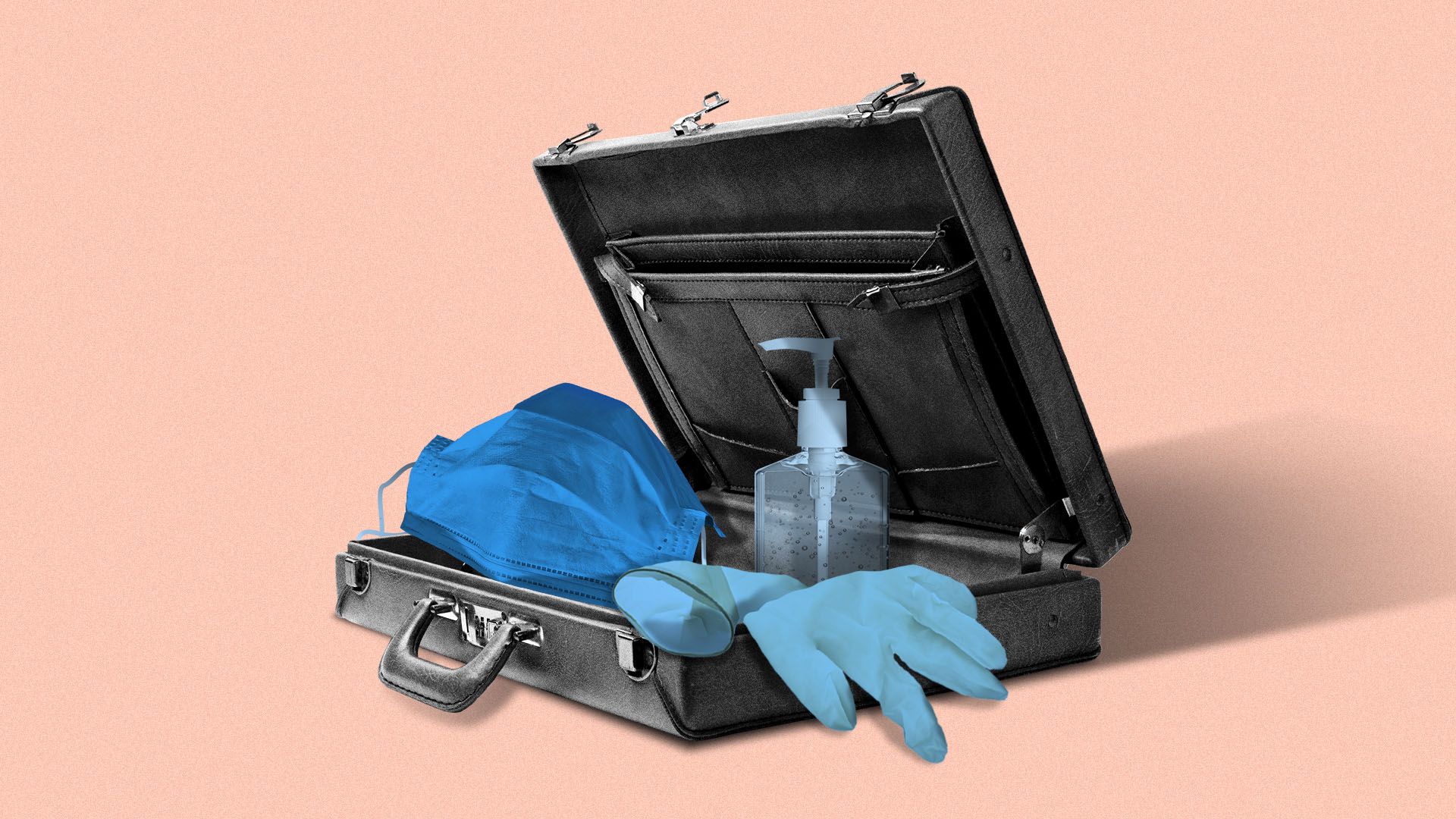The gamble to re-open the economy
Add Axios as your preferred source to
see more of our stories on Google.

Illustration: Sarah Grillo/Axios
There's a big blind spot as governors weigh how and when to lift stay-at-home orders: If businesses' doors reopen, will the people come?
Why it matters: The economy has been ravaged by efforts to contain the coronavirus outbreak — and the recovery is dependent on whether Americans feel they can return to normal life without contracting the disease.
Driving the news: The Trump administration unveiled guidelines for states to gradually begin reopening their economies — starting with states that have "beautifully low" case numbers, as President Trump said in a phone call with governors.
Yes, but: While there may be pent up demand for things like haircuts, many Americans say they'll continue staying home until they feel it's safe.
- "If people don’t have confidence that it’s safe to go out and go to your job or go to a store, they’re just not going to go regardless of what the government says,” Joshua Bolten, CEO of the Business Roundtable, a trade group for the world's biggest corporations, told CNBC.
- After Trump’s announcement, Bolten said in a statement to Axios that business leaders welcomed the federal guidelines and look forward to working with officials on “public and workplace safety, testing and virus monitoring.”
Between the lines: A range of CEOs and government leaders agree that scaling up testing is crucial to convince Americans it's safe to engage in pre-coronavirus activities.
- "Those who test positive could be quarantined and cared for, and everyone who tests negative could re-enter the economy with confidence," Amazon CEO Jeff Bezos wrote in his annual shareholder letter.
- People will only return to work "after there’s enough capacity in the hospitals, after there’s proper amount of testing,” J.P. Morgan CEO Jamie Dimon told analysts this week.
The big picture: Many unemployed Americans plagued by financial hardship won't have a choice but to return to work, even if they feel unsafe. They're relying on employers making critical adjustments to put them, as well as customers, at ease when the economy re-opens.
- Boeing says 27,000 workers, who were partially paid while facilities were shut down, will return to its plane-making factories in Washington State next week, where coronavirus cases have slowed.
- Their workplace will look a lot different: shifts will be staggered, managers will be required to check-in with employees about how they're feeling, and face coverings will be mandatory. The aerospace industry's leading union said they were reassured protective equipment will be supplied to employees.
To stave off any consumer concerns, companies are considering big changes to adhere to the new physical-distancing norm.
- One example: The International Air Transport Association, a global airlines lobbying group, said leaving middle seats open to put more space between travelers "was among likely conditions for a resumption of air travel."
- Airline passengers "won't return to travel until they feel personally safe in doing so," the group warns.
- Shared office space pioneer WeWork, too, is planning big layout changes.
The other side: Some Americans are eager for stay-at-home orders to be lifted, even as coronavirus cases continue to surge.
- In Michigan, protesters swarmed the Capitol to defy Gov. Gretchen Whitmer's lockdown orders.
- "I'm just ready to go back to work," one protester told the Detroit Free Press.
- Kentucky's Gov. Andy Beshear has also been a target. "I want to be in my church with our parish," a Kentucky protester told the Courier Journal on Thursday.
The bottom line: Reopening the economy will look different across America — but it will mean very little anywhere if people don't feel safe enough do the things that keep the economy humming.
- One stark warning: "If we don’t get this right, the public health and economic costs could become even more daunting," Suzanne Clark, the U.S. Chamber of Commerce CEO, wrote in a USA Today op-ed.
